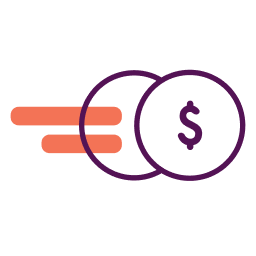- Most small business credit card applications ask about both business and personal income.
- Business income usually refers to current annual business revenues.
- Projected income may be allowed by some issuers but only in certain circumstances.
When you apply for a business credit card you’ll be asked about your income. What if your business is new and not yet making money? Or if you’re expecting to grow significantly in the near future.
Can you use projected income to qualify for a credit card?
Learn how credit card issuers evaluate income, and how to answer questions about income on a credit card application.
What is Projected Income?
Projected income is the income you expect to make, usually over the coming year. If you’ve created a business plan, it should list your expected revenue for the next and subsequent years.
If you haven’t created a business plan, you likely still have an idea of the amount of money you expect to make.
The Challenge of Getting Approved Without Established Revenue/Income
Getting small business loans and financing can be challenging if your business is a startup. You strike out on two common small business loan application requirements: time in business and revenues.
But you still have options.
Many business credit cards don’t require a specific amount of time in business. And most also accept income from other sources, including personal income, and not just sales from the business.
The Difference in Projected Income and Annual Business Revenue
On most credit card applications you’ll see a field asking for annual business revenue. This usually refers to the amount of revenue (sales) the business made the previous year.
Revenue is different from profit; you don’t subtract expenses from sales to calculate revenue, but you do subtract expenses from sales when calculating profit.
Projected income, on the other hand, refers to money the business expects to make.
Can You Use Projected Income To Get a Business Credit Card?
Most business credit card applications ask for annual revenue for the business, and do not specifically ask about expected or projected income. They want to know how much money the business brings in.
Examples from online business credit card applications from major issuers:
| Issuer | Business income description* |
| American Express | Annual Business Revenue |
| Bank of America | Gross Annual Sales |
| Capital One | Annual Business Revenue: Last year’s approximate business revenue. Please report your total annual business revenue; not your business profit. |
| Chase | Annual Business Revenue |
| Citi | Annual Business Revenue |
None of these issuers ask for projected business income. Instead they ask for annual revenue or sales. In the case of Capital One, they clearly request total annual business revenue from the year before.
Still, in many cases it’s OK to state that your business is not earning revenue. (Enter $0 in that case), provided you have sufficient income from personal sources that you can enter in the personal income section of the application.
Can New Businesses Get a Credit Card Without Any Revenue?
You may be able to qualify for a business credit card without revenue. That’s because most major business credit card issuers ask about both business income and personal household income.
Here’s how Bank of America, a major card issuer, describes personal income on one of its business credit card applications:
“Total gross household income is what you earn, or can expect to earn in the year before taxes. Examples may include salary, wages, overtime or bonuses, interest, dividends, rental income, or retirement benefits.
“Alimony, child support, or separate maintenance income did not be revealed if you do not wish to have it considered as a basis for repayment.
“Total household gross income may include non-taxable income, such as disability or worker’s compensation, housing allowance, public assistance, Social Security, or child support. If you include non-taxable income, increase that amount by 25%.”
If you are 21 or older, you may include income from others that you can reasonably access to pay your bill.”
Other issuers often have similar language for the question about personal income.
Most small business credit card issuers allow you to apply based on both personal and business income.
If you have another W-2 job or business that is earning money, for example, or if you have a spouse, partner, or member of your household who is willing to contribute toward your credit card payments, you may include that information on the personal income section of your credit card application, provided you are at least 21 years old. (There’s a special section of the Credit CARD Act aimed at protecting younger consumers from running up debt they can’t afford to pay.)
Corporate cards are different; they may only ask you for information about business income.
Typical Business Credit Card Approval Requirements
Most small business credit cards take into account the following factors:
Credit scores
Almost all small business credit card issuers check the applicant’s personal credit history with one of the major credit bureaus, and most credit cards require good credit scores or excellent credit. They may use VantageScore or FICO scores.
A few issuers also check business credit, though many card issuers do not require high business credit scores to qualify.
There are some small business credit card issuers that offer business credit cards for limited credit or bad credit. These include secured cards and some business charge cards.
Income and revenue requirements
Card issuers want to make sure you have enough income to repay any money you borrow on your card. (And, yes, even if you pay your card in full each month, you are borrowing money for a short period of time.) Issuers rarely reveal minimum income requirements so a specific number is hard to pin down.
With most business credit cards, issuers allow you to use both personal/household income as well as business income and revenue to qualify. That’s one reason credit cards, including 0% APR business credit cards, are popular with startups that aren’t yet making much money.
Time in business requirements
Most small business card issuers don’t have a minimum time in business requirement, but if they do, that will usually be disclosed on the application. However, corporate cards may require a minimum amount of time in business.
Other factors
Besides a credit score, issuers may examine other factors, such as credit utilization (balances on your existing credit cards); or very negative credit such as charge-offs, collection accounts and bankruptcy.
When Can Projected Income Be Used?
It may be possible to accurately state projected income for contracts or work your business has already secured. Let’s say you land a large corporate contract or government contract, or are awarded a grant, where payment is all but certain. It’s possible an issuer will be willing to accept that, but it’s a good idea to double check with the issuer to clarify its policy.
Pros and Cons of Using Projected Income
Comparing the pros and cons of projected income is pretty simple.
Pros
- Easier for startups and growing businesses to qualify.
Cons
- Most issuers ask for annual business revenue, with no mention of projected income.
Tips for Getting Approved with Projected Income
It’s important to be honest when applying for credit. Lying on a credit application is a crime, and could have significant consequences.
One possible consequence of lying on a credit application is that it can put your personal assets at risk. Most business credit cards require a personal guarantee. That means if your business doesn’t repay what it charges, the issuer may try to come after your personal income or assets.
If you file for bankruptcy, and it turns out you lied on your credit application, you may not be able to wipe out the debt in bankruptcy. And you could even face criminal prosecution.
If you plan to apply based on projected income, make sure you talk to the card issuer to find out whether that’s acceptable. Again, income guaranteed by a government contract or other reliable source may be acceptable, but you’ll want to check first.
FAQs for Using Projected Income To Get Business Credit Card Approvals
Can you use projected income for a business credit card?
Most credit card issuers require you to state your annual revenue. This usually refers to your actual business revenue. If you have secured contracts or sales for a certain amount of business, the issuer may allow you to use that revenue to qualify. Be sure to ask.
What should I put for annual income for a business credit card?
Most business credit card applications will ask you about two different types of income: business income and personal income. The personal income section will provide details about the types of income you may be able to include.
The business income section will usually ask for “gross revenue” or “annual business revenue.” Typically the issuer is looking for your actual business income or sales, before expenses or taxes are deducted. If you have questions about revenue to include, ask the issuer.
How much revenue do you need for a business credit card?
Issuers rarely reveal their minimum required revenue out of concerns about fraud.
If you don’t have business revenue because your business is brand new, you can state business revenue as $0, and qualify based on personal household income.
It’s not uncommon for issuers to also use income to help set credit limits. Lower income may still allow you to qualify but with a smaller credit line.
Can I estimate my income for a credit card?
It’s not always easy to know exactly what to state for income on a credit card qualification. You may have a job with hours that fluctuate, for example, or a business where your sales vary seasonally or all year long.
Issuers can ask for proof of income, though many do not. If you estimate your income based on what you earned the year before, you’re not likely to run into trouble. But if you seriously overstate your income, you could wind up in trouble, especially if you can’t repay the debt.





Have at it! We'd love to hear from you and encourage a lively discussion among our users. Please help us keep our site clean and protect yourself. Refrain from posting overtly promotional content, and avoid disclosing personal information such as bank account or phone numbers.
Reviews Disclosure: The responses below are not provided or commissioned by the credit card, financing and service companies that appear on this site. Responses have not been reviewed, approved or otherwise endorsed by the credit card, financing and service companies and it is not their responsibility to ensure all posts and/or questions are answered.